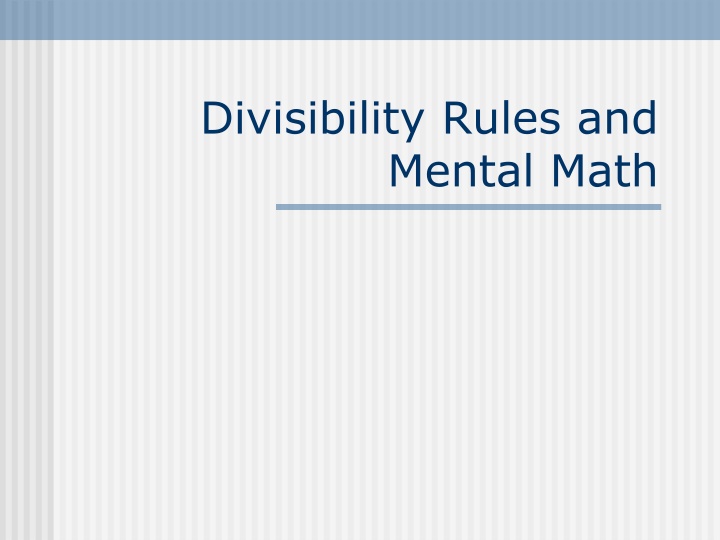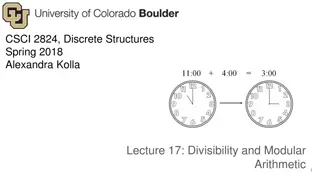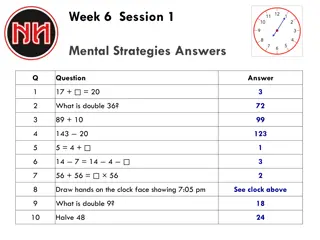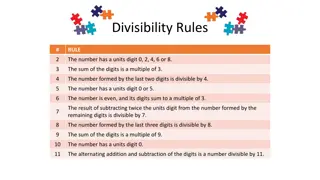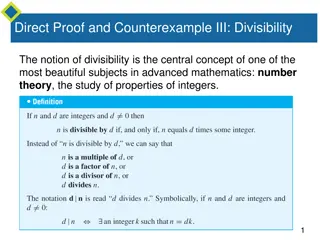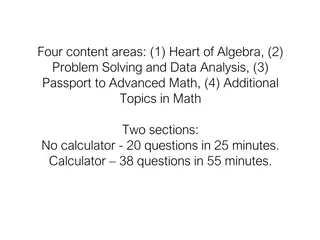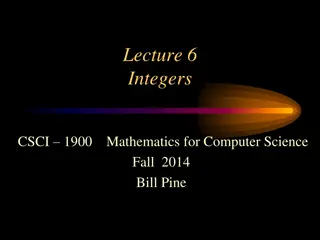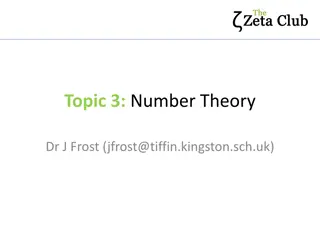Divisibility Rules and Mental Math
Understand and apply different divisibility rules for numbers, including rules for divisibility by 2, 3, 4, 5, 6, 9, and 10. Learn how to determine if a number is divisible by performing mental math calculations based on these rules.
Download Presentation

Please find below an Image/Link to download the presentation.
The content on the website is provided AS IS for your information and personal use only. It may not be sold, licensed, or shared on other websites without obtaining consent from the author.If you encounter any issues during the download, it is possible that the publisher has removed the file from their server.
You are allowed to download the files provided on this website for personal or commercial use, subject to the condition that they are used lawfully. All files are the property of their respective owners.
The content on the website is provided AS IS for your information and personal use only. It may not be sold, licensed, or shared on other websites without obtaining consent from the author.
E N D
Presentation Transcript
Divisibility Rules and Mental Math
Vocabulary A number is divisible by another number if it can be divided into and result in a remainder of 0. 24 is divisible by 4, because 24 4 = 6. 24 is not not divisible by 5, because 24 5 = 4.8 (or 4R4). An even number ends with a 0, 2, 4, 6, or 8. An odd number ends with a 1, 3, 5, 7, or 9.
Divisibility Rules A number is divisible by 2 if the ones digit is even. 3 if the sum of the digits are divisible by 3. 4 if the last 2 digits are divisible by 4. 5 if the ones digit is 0 or 5.
A number is divisible by 6 if the number is divisible by BOTH 2 and 3. 9 if the sum of the digits are divisible by 9. 10 if the ones digit is 0.
Example: Test each number for divisibility by 3. 216 2 + 1 + 6 = 9 9 is divisible by 3, so 216 is divisible by 3. yes 437 4 + 3 + 7 = 14 14 is not divisible by 3, so 437 is not divisible by 3. no
Example: Test the number for divisibility by 2, 5, or 10. 454,320 2 works because the number is even. 5 works because the number ends with 0. 10 works because the number ends with 0. 4 + 5 + 4 + 3 + 2 + 0 = 18. Is the number divisible by 3 and9? 18 is divisible by 3 and 9, so 454,320 is also divisible by 3 and 9.
